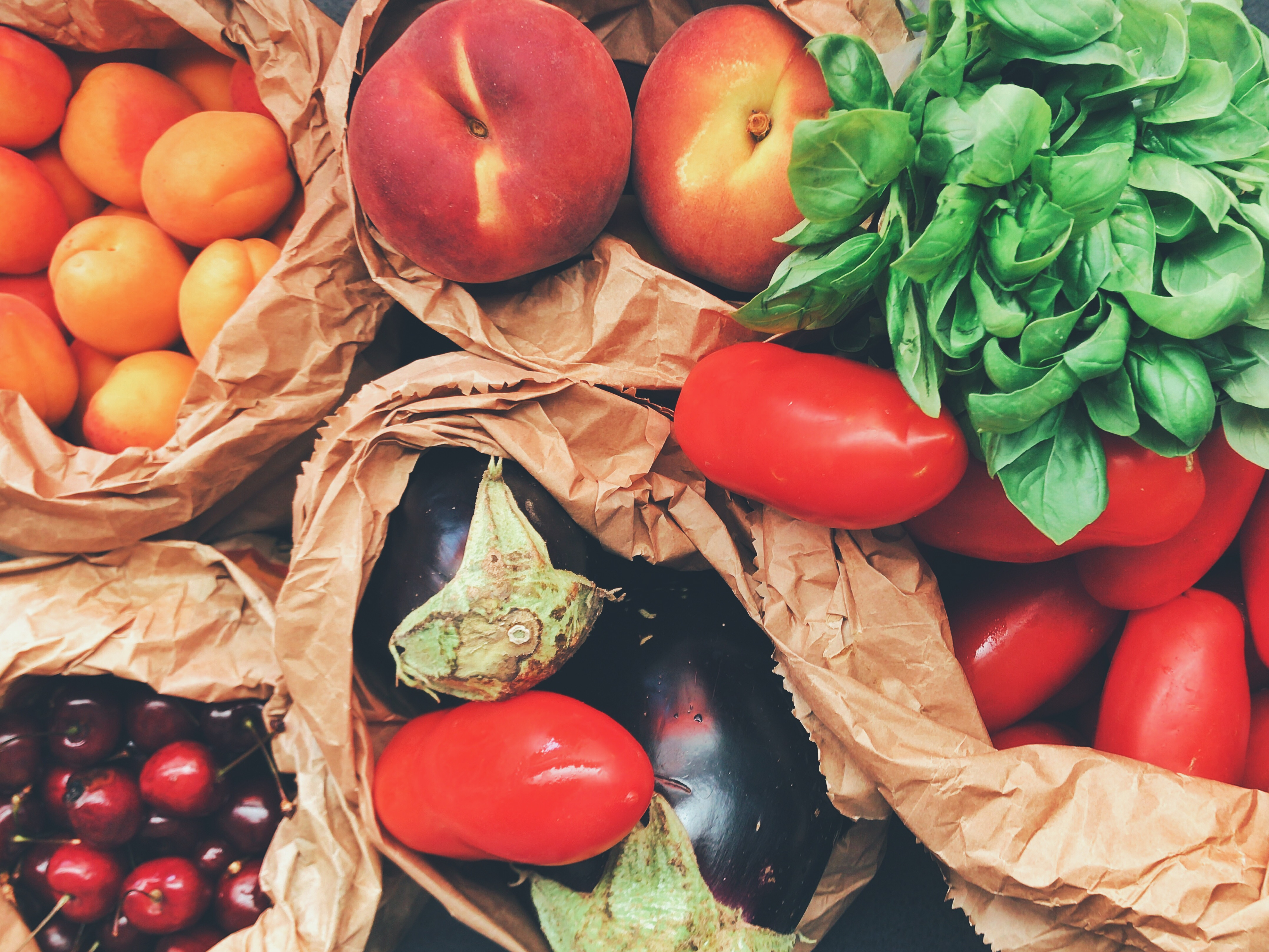19 top tips to help new ostomates come to terms with their stoma and live a happy life
- 02.12.2019
- JessicaMG
- Clinical-negligence, Clinical-negligence
Have you recently had stoma surgery and are now struggling to work out how you can get back to living a normal, happy life from here?
If so, you’re not alone. In fact, there are thousands upon thousands of fellow ostomates out there who have experienced the exact same thing, and will likely have plenty of advice to help you remain positive and take control of your new life.
We’ve chosen to speak to two ostomates - both of whom are influential experts on the topic in their own right - who want to share their top tips for those who have recently had stoma surgery.
-------------
Billie Anderson, aged 23, is the owner of a stoma awareness blog, Trust Your Gut, and an accompanying Instagram page. She has been living with a stoma bag for a year and a half, after having her colon removed due to ulcerative colitis.
Here are her top ten tips for people for people who suddenly find themselves with a stoma:
1 - Go on social media

2 - Surgery will be tough, but you’ll get through it
It isn’t easy. You will struggle and have moments where you’re down, and that’s OK. My bag gave me my life back and I saw it as a huge positive when I came out of hospital. However, I wasn’t prepared for the moments when my bag can get in the way, and this played on my mental wellbeing. Be prepared for days when you don’t like the bag - it will happen, but it doesn’t last forever. You’re allowed to be upset. You’re allowed to get angry at the situation! But these days are part of stoma life, and they helped me to be real with myself and others about the magnitude of this surgery.

3 - Reach out if you’re struggling
There are thousands of people on social media, help sites, charity websites and in hospitals who can help you when you’re struggling. My friends and family have been a lifeline for getting through it all, but so has every nurse who let me cry on her shoulder when I was scared, and my surgeon for making me feel like I was in safe hands. And my social media family who are always there when I need them. And stoma nurses who can help quash my stoma worries. And Crohn’s and Colitis UK, a charity very close to my heart, who support so many people going through the same thing.
4 - Research all the bag companies you can
There are a whole host of stoma product manufacturers, as well as a ton of supplies to choose from. Your stoma routine and the bags/accessories you use are your choice. I went through Salts Healthcare, Pelican and Dansac before finally opting for Coloplast. I ordered samples to try from each bag company and tested them to see which one I preferred. I change my bag every morning and use a Salts aloe ring under my bag to stop leaks, with the SenSura Mio one-piece from Coloplast over the top.
5 - Food: it’s all about trial and error
I can eat a lot more with my stoma than I ever could when I was suffering with ulcerative colitis, and it is all about trial and error. I was on a zero-fibre diet for a month after my op and slowly reintroduced fibrous foods as the months went by. This is very personal to each case, however I have a problem with only eating vegetables, or anything raw. I find padding it out with carbs helps to avoid a blockage. Another thing to be aware of is dehydration; I found that water made me more dehydrated, and reached for things like squash, Lucozade Sport and milk. They can help to replace the electrolytes your body finds it hard to make without the colon.
6 - Take your time
Everyone moves at their own pace. It is always better to go forward slowly than try to run before you can walk and risk stepping backwards.
7 - Have someone with you for your first solo bag change
Seeing your intestine poking through your stomach for the first time after surgery is weird, unsettling and scary. I had my mum with me the first time I changed my bag on my own. It meant I could talk through the bag change steps and made me feel like I knew what I was doing. Talking it through with someone means they can tell you if you’ve missed something, and that can be really helpful when you’re learning how to do it. My bag changes took me over an hour when I started; a year and a half on and it takes me four minutes (I’ve timed it).
8 - You will have a ‘normal’ life
OK, so you might poo into a bag now, and things will be different, but nothing will stop you from doing what you want! I can wear what I want, eat what I want, go to the gym if I want. I’ve been on two holidays and have been swimming in the sea. I graduated university and now have a full-time job that I love. Having a stoma hasn’t ended my social or professional life - having a stoma has given me a social and professional life.
9 - Bag leaks are normal
They can be very upsetting. The first time I got a bag leak at work, I burst into tears in front of my manager. Unexpected bag leak always upsets me, and sometimes I need five minutes to let my emotions out. There are many reasons why they would happen, and for me eating just vegetables can contribute to a bag leak, or wearing very tight clothes means the poo can’t drop to the bottom of the bag and it can get underneath. Sometimes I don’t put it on perfectly and that might cause a bag leak too; sometimes there isn’t any explanation, and you’re just unlucky. But be prepared - take an emergency supply kit with you everywhere and take your time to deal with it.

10 - It will become your new normal
Your new routine will be daunting, but it will become normal. I used to be very paranoid about my bag, always checking it to make sure it hadn’t leaked and just being overly cautious. But after a year and a half, my stoma has just become part of me and my daily routine. Bag changing is as normal as brushing my teeth, and seeing my intestine poking through my stomach is just how my body is now. Looking back at pictures without my bag seems really strange, and I actually prefer my body with my stoma bag.
-------------
Sarah Russell is a clinical exercise specialist and movement coach, and is currently recognised as one of the UK’s leading practitioners in abdominal rehabilitation and recovery after stoma surgery. She is the author of the book The Bowel Cancer Recovery Toolkit and wears a stoma bag herself - so who better to offer top tips from a medical perspective about dealing with and recovering from stoma surgery?
11 - Strengthen your core
The fear of developing a hernia is a big concern for many people with a stoma. It’s important to strengthen your deep internal core muscles after surgery, which can reduce this risk. Think of it as building up your own internal support garment, or creating internal scaffolding.
This doesn’t mean doing sit-ups and plank exercises (at least not to start with); it means some gentle pilates-based movements to restore your core muscles. It’ll also rebuild your confidence in your body and the way in which you move.
The Bowel Cancer Recovery Toolkit has some great advice and exercises that show exactly how to do this. Alternatively, you can work through the me+recovery programme from ConvaTec, which I also wrote and can be found here.
12 - Experiment with as many different bags and products as you can
There is so much choice available. One bag is definitely not the same as another and there is never a ‘one size fits all’.You have the right to choose and you don’t need to stick with the bag you brought home from hospital. Call around different companies directly, try out samples and find something that works best for you. Never accept sore skin, leaks or odour - there will be a great bag out there just waiting for you to find it.
13 - Eat a healthy, plant-based diet

Often people are advised to eat a bland diet, not to eat fruit, vegetables, fibre and salad in case it causes a problem or blockage. While initially this is good advice as the bowel settles after surgery, in the long run it doesn’t make for a healthy balanced diet.
There is usually no reason why you shouldn’t be able to eat fruit, vegetables, salad and nuts. Try smaller amounts to begin with, combine with other foods and be brave – try things and see what happens. Cook things differently to make them softer or easier to digest and experiment. Eating a healthy, balanced, plant-based diet is really important for good health, and you may just need to be a bit creative to get your nutrients in a different way.

14 - Develop a hydration strategy
Hydration is particularly important for people who have a type of stoma called an ‘ileostomy’. Having an ileostomy means the entire colon has either been removed or bypassed, so you don’t have the same ability to absorb water and salts.But don’t just drink plain water, as too much water can flush the electrolytes out of your body. Make sure you drink fluids that contain electrolytes to improve your hydration status. So try things like Dioralyte, which you can get on prescription and don’t wait until you feel unwell - drink it every day as a ‘hydration strategy’. If it’s hot, you’re exercising or travelling, you’ll need more fluids.
15 - Don’t be embarrassed
Odour can be a worry for some people with a stoma, and this can limit where they go and where they choose to go to the toilet. For some people, it can be life-limiting. My advice would be not to feel embarrassed. Your sense of smell is heightened and other people probably won’t even notice. There are lots of ways to improve things, though, and help you feel more confident.
For example, you can get drops to put into your bag to mask or eliminate the smell - Na’scent is especially good. You can use air fresheners or a squirt of perfume into the air or try little gel sachets in the stoma bag, which can really help.
Away from her job and medical expertise, what advice would Sarah have for ostomates, based on her own experiences of having stoma surgery?
16 - Everyone is different
People have stoma surgery for many different reasons including cancer, ulcerative colitis, Crohn’s disease, diverticulitis, injury, childbirth and many other types of illness, trauma and accidents. Sometimes surgery is planned, whereas other times it’s an emergency and you can go into surgery and ‘wake up’ with a stoma that you didn’t expect.
Either way, learning to live with a stoma can sometimes be a challenging process. Some people find it devastating, while for others it gives them relief from symptoms and a new lease of life. Everyone is different.
17 - Develop a ‘growth mindset’
If your stoma was a shock or emergency, or if you will have the stoma for the rest of your life, it can be especially hard to come to terms with it.
I’ve found trying to develop a ‘growth mindset’ to be particularly important. Instead of thinking about the barriers, challenges or things that are difficult and feeling negative, try to focus on what you can control instead and what you can do to help yourself: what you CAN do, rather than what you CAN’T.
Having a growth mindset is about looking for solutions to problems and ways to overcome difficulties. It’s much more than just ‘being positive’ - having a solution-based mindset is far more helpful.
18 - Don’t let it hold you back
When I first had my surgery, I remember coming home from hospital and Googling ‘What sports can you do with a stoma?’, as previously I’d been a runner and triathlete.
I found an inspiring mountaineer called Rob Hill with a stoma who had climbed Mount Everest, and I thought: “Oh OK, if you can climb Everest with a stoma, you can pretty much do anything, and I’m pretty sure I can run some marathons.” And that was all I needed to know.
Now I’ve run 32 marathons and various ultra runs, climbed mountains and experienced some amazing treks all around the world. Having a stoma doesn’t stop you doing anything at all. There are challenges, but you can overcome them and do anything you want.
19 - Keep perspective
Having emergency stoma surgery has taught me so much. Life is short and life is for living. There are much worse things that can happen to you, and with the right support around you, the right products and the right attitude, you can adjust to life with a stoma and live life to the full.I have so much more gratitude for life now and appreciate my health and how lucky I am.
